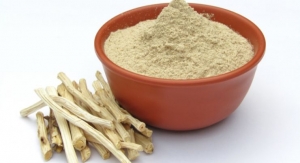Sean Moloughney, Editor04.04.17
While results were not “statistically significant,” a large randomized clinical trial published in JAMA titled “Effect of Vitamin D and Calcium Supplementation on Cancer Incidence in Older Women,” provides evidence that higher blood levels of vitamin D, specifically 25-hydroxyvitamin D (25(OH)D), may reduce cancer risk, according to researchers.
Evidence from previous research suggests that low vitamin D status may increase the risk of cancer. This study sought to determine if dietary supplementation with vitamin D3 and calcium could reduce the risk of cancer among older women. Funded by the National Institutes of Health, the study was conducted by Creighton University with cooperation from the University of California San Diego.
This four-year, double-blind, placebo-controlled, population-based clinical trial included 2,303 healthy postmenopausal women 55 years or older with a mean baseline serum 25-hydroxyvitamin D level of 32.8 ng/mL. Subjects were randomized to a treatment group (1,156) or a placebo group (1,147). The treatment group received 2,000 IU/d of vitamin D3 and 1,500 mg/d of calcium; the placebo group received identical placebos.
The primary outcome was the incidence of all-type cancer (excluding non-melanoma skin cancers), which was evaluated using Kaplan-Meier survival analysis and proportional hazards modeling.
Results & Conclusions
Among 2,303 randomized women (mean age, 65.2 years [SD, 7.0]; mean baseline serum 25-hydroxyvitamin D level, 32.8 ng/mL [SD, 10.5]), 2064 (90%) completed the study. At year 1, serum 25-hydroxyvitamin D levels were 43.9 ng/mL in the vitamin D3 + calcium group and 31.6 ng/mL in the placebo group.
A new diagnosis of cancer was confirmed in 109 participants, 45 (3.89%) in the vitamin D3 + calcium group and 64 (5.58%) in the placebo group (difference, 1.69% [95% CI, −0.06% to 3.46%]; P = .06). Kaplan-Meier incidence over 4 years was 0.042 (95% CI, 0.032 to 0.056) in the vitamin D3 + calcium group and 0.060 (95% CI, 0.048 to 0.076) in the placebo group; P = .06. In unadjusted Cox proportional hazards regression, the hazard ratio was 0.70 (95% CI, 0.47 to 1.02).
Adverse events potentially related to the study included renal calculi (16 participants in the vitamin D3 + calcium group and 10 in the placebo group), and elevated serum calcium levels (6 in the vitamin D3 + calcium group and 2 in the placebo group).
Researchers concluded that among healthy postmenopausal older women with a mean baseline serum 25-hydroxyvitamin D level of 32.8 ng/mL, supplementation with vitamin D3 and calcium compared with placebo did not result in a significantly lower risk of all-type cancer at 4 years. Further research is necessary to assess the possible role of vitamin D in cancer prevention, they said.
Expert Analysis
Women who were given vitamin D3 and calcium supplements had 30% lower risk of cancer. While this difference in cancer incidence rates between groups did not quite reach statistical significance, in further analyses, blood levels of vitamin D, specifically 25-hydroxyvitamin D (25(OH)D), were significantly lower in women who developed cancer during the study than in those who remained healthy.
“This study suggests that higher levels of 25(OH)D in the blood are associated with lower cancer risk,” said principal investigator Joan Lappe, PhD, RN, Creighton University Criss/Beirne Professor of Nursing and Professor of Medicine. “The study provides evidence that higher concentrations of 25(OH)D in the blood, in the context of vitamin D3 and calcium supplementation, decrease risk of cancer.”
These results contribute to a growing body of scientific findings that indicate that vitamin D is a critical tool in fighting cancer. It is also of value in preventing other diseases, according to previous research.
Other Creighton researchers involved in the study included Robert Recker, MD, Dianne Travers-Gustafson, PhD, RN, and Patrice Watson, PhD, University of California San Diego Professors Cedric F. Garland, DrPH, FACE and Edward D. Gorham, PhD, were co-investigators. Professor Robert P. Heaney of Creighton University, who died Aug. 6, 2016, played a key role in inspiring and planning this study, researchers noted. Prof. Heaney was the acknowledged world expert on the physiology of vitamin D and calcium and their relationship to several major diseases.
According to Ms. Lappe, most cells in the body need vitamin D to function properly. Without adequate vitamin D, normally functioning cells can convert to malignant cells. “While people can make their own vitamin D3 when they are in the sun near mid-day, sunscreen blocks most vitamin D production. Also, due to more time spent indoors, many individuals are lacking adequate levels of vitamin D compounds in their blood,” Ms. Lappe said. “The results of this study lend credence to a call for more attention to the importance of vitamin D in human health and specifically in preventing cancer.”
Duffy MacKay, ND, senior vice president, scientific & regulatory affairs, Council for Responsible Nutrition (CRN), Washington, D.C., said the study results were especially promising considering subjects had higher baseline vitamin D levels at the beginning of the study compared to the U.S. population, suggesting that the potential benefits of vitamin D supplementation may not have been fully realized. “The study raises the question that if the placebo group had been a population of women that was below average for vitamin D levels at baseline, would we have seen this study reach statistical significance?”
Additionally, in the post hoc analysis, when the authors eliminated the cancers diagnosed during the first year of the study, presumably cancers that started before the supplements could have had a protective effect, there was a statistically significant 35% reduction in cancer risk, Dr. MacKay noted. “Of course, this finding should not be over interpreted, but if supplementing with an essential nutrient could significantly reduce the risk of cancer, it is all the more reason to support more research to build on these findings.”
Overall, the scientific community, healthcare practitioners and consumers are already aware of the important benefits of vitamin D, said Dr. MacKay. “This rigorous, well-designed study points to the possibility of more promising news for this popular, and ever-important, nutrient. Conducted in a population of post-menopausal women, the study shows the potential for vitamin D to reduce cancer risk, and we encourage more research in this area.”
Cancer is multifactorial, he added, “but good nutrition in combination with a lifetime of other healthy habits can help to reduce risk of disease.”
Evidence from previous research suggests that low vitamin D status may increase the risk of cancer. This study sought to determine if dietary supplementation with vitamin D3 and calcium could reduce the risk of cancer among older women. Funded by the National Institutes of Health, the study was conducted by Creighton University with cooperation from the University of California San Diego.
This four-year, double-blind, placebo-controlled, population-based clinical trial included 2,303 healthy postmenopausal women 55 years or older with a mean baseline serum 25-hydroxyvitamin D level of 32.8 ng/mL. Subjects were randomized to a treatment group (1,156) or a placebo group (1,147). The treatment group received 2,000 IU/d of vitamin D3 and 1,500 mg/d of calcium; the placebo group received identical placebos.
The primary outcome was the incidence of all-type cancer (excluding non-melanoma skin cancers), which was evaluated using Kaplan-Meier survival analysis and proportional hazards modeling.
Results & Conclusions
Among 2,303 randomized women (mean age, 65.2 years [SD, 7.0]; mean baseline serum 25-hydroxyvitamin D level, 32.8 ng/mL [SD, 10.5]), 2064 (90%) completed the study. At year 1, serum 25-hydroxyvitamin D levels were 43.9 ng/mL in the vitamin D3 + calcium group and 31.6 ng/mL in the placebo group.
A new diagnosis of cancer was confirmed in 109 participants, 45 (3.89%) in the vitamin D3 + calcium group and 64 (5.58%) in the placebo group (difference, 1.69% [95% CI, −0.06% to 3.46%]; P = .06). Kaplan-Meier incidence over 4 years was 0.042 (95% CI, 0.032 to 0.056) in the vitamin D3 + calcium group and 0.060 (95% CI, 0.048 to 0.076) in the placebo group; P = .06. In unadjusted Cox proportional hazards regression, the hazard ratio was 0.70 (95% CI, 0.47 to 1.02).
Adverse events potentially related to the study included renal calculi (16 participants in the vitamin D3 + calcium group and 10 in the placebo group), and elevated serum calcium levels (6 in the vitamin D3 + calcium group and 2 in the placebo group).
Researchers concluded that among healthy postmenopausal older women with a mean baseline serum 25-hydroxyvitamin D level of 32.8 ng/mL, supplementation with vitamin D3 and calcium compared with placebo did not result in a significantly lower risk of all-type cancer at 4 years. Further research is necessary to assess the possible role of vitamin D in cancer prevention, they said.
Expert Analysis
Women who were given vitamin D3 and calcium supplements had 30% lower risk of cancer. While this difference in cancer incidence rates between groups did not quite reach statistical significance, in further analyses, blood levels of vitamin D, specifically 25-hydroxyvitamin D (25(OH)D), were significantly lower in women who developed cancer during the study than in those who remained healthy.
“This study suggests that higher levels of 25(OH)D in the blood are associated with lower cancer risk,” said principal investigator Joan Lappe, PhD, RN, Creighton University Criss/Beirne Professor of Nursing and Professor of Medicine. “The study provides evidence that higher concentrations of 25(OH)D in the blood, in the context of vitamin D3 and calcium supplementation, decrease risk of cancer.”
These results contribute to a growing body of scientific findings that indicate that vitamin D is a critical tool in fighting cancer. It is also of value in preventing other diseases, according to previous research.
Other Creighton researchers involved in the study included Robert Recker, MD, Dianne Travers-Gustafson, PhD, RN, and Patrice Watson, PhD, University of California San Diego Professors Cedric F. Garland, DrPH, FACE and Edward D. Gorham, PhD, were co-investigators. Professor Robert P. Heaney of Creighton University, who died Aug. 6, 2016, played a key role in inspiring and planning this study, researchers noted. Prof. Heaney was the acknowledged world expert on the physiology of vitamin D and calcium and their relationship to several major diseases.
According to Ms. Lappe, most cells in the body need vitamin D to function properly. Without adequate vitamin D, normally functioning cells can convert to malignant cells. “While people can make their own vitamin D3 when they are in the sun near mid-day, sunscreen blocks most vitamin D production. Also, due to more time spent indoors, many individuals are lacking adequate levels of vitamin D compounds in their blood,” Ms. Lappe said. “The results of this study lend credence to a call for more attention to the importance of vitamin D in human health and specifically in preventing cancer.”
Duffy MacKay, ND, senior vice president, scientific & regulatory affairs, Council for Responsible Nutrition (CRN), Washington, D.C., said the study results were especially promising considering subjects had higher baseline vitamin D levels at the beginning of the study compared to the U.S. population, suggesting that the potential benefits of vitamin D supplementation may not have been fully realized. “The study raises the question that if the placebo group had been a population of women that was below average for vitamin D levels at baseline, would we have seen this study reach statistical significance?”
Additionally, in the post hoc analysis, when the authors eliminated the cancers diagnosed during the first year of the study, presumably cancers that started before the supplements could have had a protective effect, there was a statistically significant 35% reduction in cancer risk, Dr. MacKay noted. “Of course, this finding should not be over interpreted, but if supplementing with an essential nutrient could significantly reduce the risk of cancer, it is all the more reason to support more research to build on these findings.”
Overall, the scientific community, healthcare practitioners and consumers are already aware of the important benefits of vitamin D, said Dr. MacKay. “This rigorous, well-designed study points to the possibility of more promising news for this popular, and ever-important, nutrient. Conducted in a population of post-menopausal women, the study shows the potential for vitamin D to reduce cancer risk, and we encourage more research in this area.”
Cancer is multifactorial, he added, “but good nutrition in combination with a lifetime of other healthy habits can help to reduce risk of disease.”




























